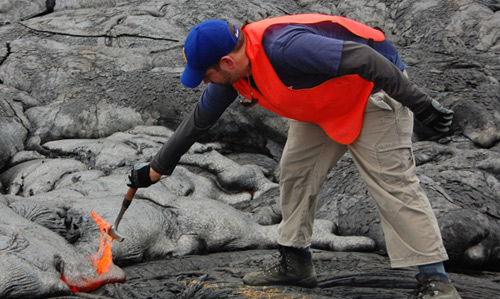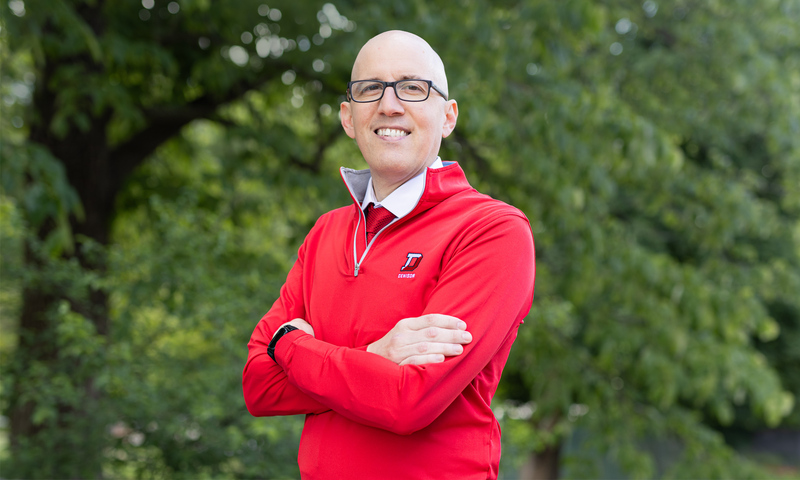Erik Klemetti, an assistant professor in the Department of Geosciences since 2009, has always had a keen interest and awareness about how human interact with the environment in both positive and negative ways. This connection between the geologic and human facets of studying the environment was instilled during his days as both a history and geosciences major at Williams College, where he was able to see the direct connections between social, political, economic, and geologic processes and ideas.
As a professor at Denison University, Erik teaches GEOS 240 “Earth Resources,” a class that not only helps students understand the geologic processes that form the resources that humans use, but also the social and environmental consequences of that use. This combination is firmly rooted in the liberal arts, where only through a holistic examination of resources can students be ready to meet the challenges they present.
It is difficult to be an informed activist in the realm of resource use without knowing how a resource is formed, extracted, processed and used — each of these pieces play a role in the overall impact of the resource on the environment. However, the effect of resources on the physical environment and the people involved in its procurement is also strongly controlled by the status of the nation and even the individual consumers of the resource.
Erik saw this clearly with some of his graduate work at Oregon State University. During his time there, he worked in the Andes of Chile on Aucanquilcha, a volcano that was a former sulfur mine, located in the Chilean copper belt, where some of the largest copper mines on Earth are found.
His research is into the processes that form magma underneath volcanoes and few geologic events impact the global environment like volcanic eruptions. He studies volcanoes in Chile, New Zealand (Tarawera), Oregon (South Sister and Hood) and California, where he currently has an active National Science Foundation-funded project studying Lassen Peak and surrounding volcanoes.
Multiple Denison students, including environmental studies (ENVS) majors, have worked with him on this project as summer or senior research. He also has advised ENVS senior research that examines the regulation surrounding fracking in Ohio and Pennsylvania. Erik has served on the Campus Sustainability Committee at Denison where he helped craft the University’s first Sustainability Plan. If you want to know more about how geosciences can help you better understand the environment, you can find him on the third floor of Olin Hall.

